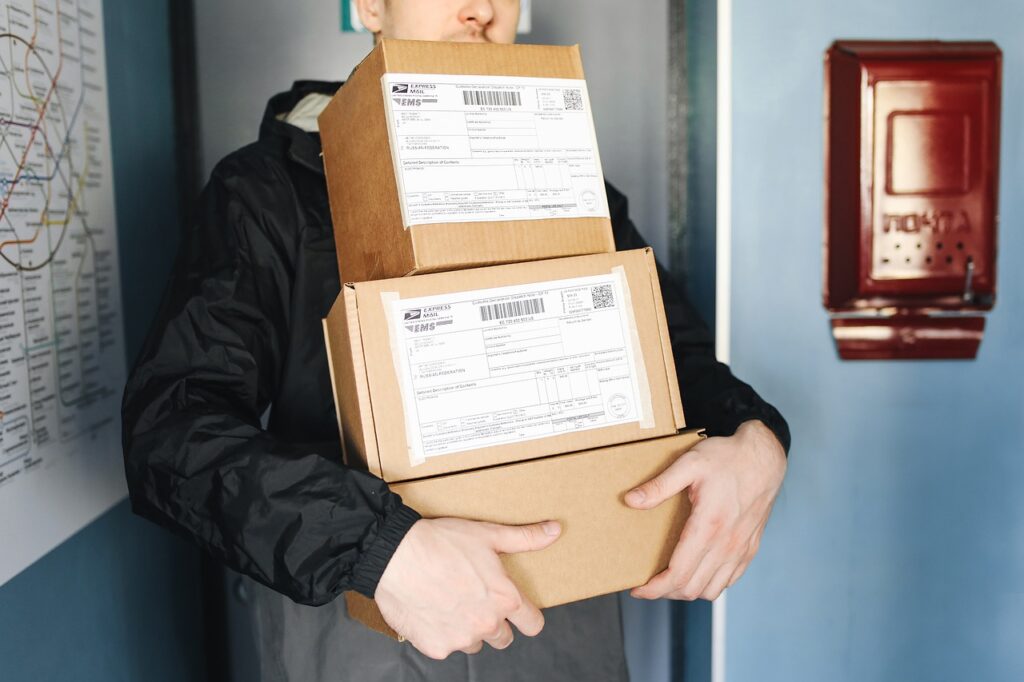What insurance do I need to work as a courier?

With the surge in demand for online delivery services, it has never been a better time to become a self employed courier. You could earn a little extra income as a side hustle or by starting your own hire and reward delivery business. Whilst you have the big players, such as Amazon Flex, Hermes, Deliveoo and many others, many opportunities still exist, particularly in providing a local delivery service.
We all know that it is a legal requirement to have car insurance to drive legally. However, when you are using your vehicle for business, driving without the correct insurance is also illegal. Multiquotetime is urging anyone getting into the hire and reward market to fully understand the type of insurance they need to operate your business legally. Without the correct cover, your dreams of a side income or your own delivery business can be shattered if caught driving illegally. Without the correct cover, you are essentially driving without insurance, which is illegal.
What is Hire and Reward Insurance?
Getting to grips with van delivery insurance starts with understanding what hire and reward insurance is. A leading specialist in the hire and reward Insurance sector, Multiquotetime offers a simple explanation. The term hire and reward is used by the insurance sector if you or your company receive a reward by providing a service by using a vehicle to deliver goods
Whilst the reward is often monetary, it is not limited to payments and extends to any type of reward. Most of us are familiar with private hire vehicles which is also a category of hire and reward insurance, but in this case goods are replaced with paying passengers. Whilst slightly different from van hire and reward insurance it does fall under the same category, and you will need PHV insurance to legally offer this service in the UK
The reason for the separate categorisation of insurance into a “hire and reward”, is that cover for hire and reward services poses a higher risk to the insurance broker. The additional risk is reflected in higher insurance premiums when compared to standard business van or car insurance.
With a delivery van service, you will be delivering multiple goods with multiple drop-offs. This is in contrast to haulage insurance, which is long haulage with normally 1 or 2 drop-offs on route. For a delivery van service, you must legally have hire and reward van insurance. This is not business van insurance, but a specific type of cover that is aimed at delivery of goods.
How to save on hire and reward van and car insurance
Because of the added risk associated with being on the road all day making time sensitive deliveries, van hire for reward insurance can be expensive. Multiquotetime founder EamonnTurley has provided the following tips to help consumers find a better deal
- Never auto renew – Always get multiple quotes from comparison sites. Do not just use one comparison site as some have different insurance providers and even prices from the same provider can vary from one comparison platform to the next.
- Also keep in mind that some big players in the UK insurance market do not appear on comparison sites. DirectLine is a good example of a very popular broker with good deals that can not be found on any comparison site.
- Check to see if you can find a better deal by visiting the cashback sites like Quidco and others.
- Lastly, Third party is not always the cheapest, so always include comprehensive cover when make quote comparisons.
If your business grows, and you add more vans or cars, you may wish to consider fleet van insurance. According to Multiquotetime van fleet courier insurance is a more flexible option that lets you easily add new vehicles, normally at a discount. Whilst it should work out cheaper than the single policy route, always compare both options.
The last word of advice from Multiquotetime is to keep your claims down. One easy way to achieve this is to review and upgrade your van security to prevent it being the target of theft.